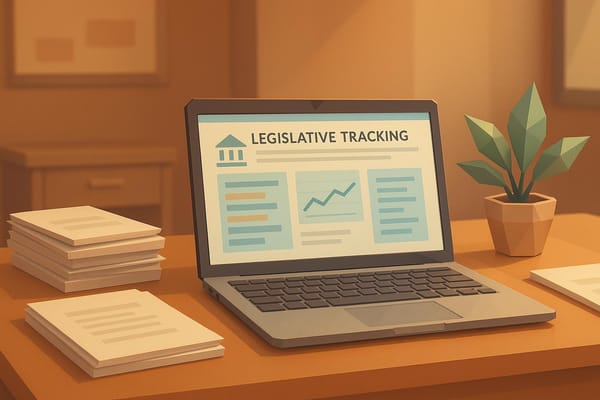Protecting Pharmacists' Off-Label Practices

HB79 aims to protect pharmacists from punitive actions related to the off-label use of medications. With the increasing complexity of modern medicine, pharmacists often play a crucial role in recommending treatments that may not follow conventional labeling but serve to address patient needs effectively. Understanding this bill is vital for pharmacists, healthcare providers, and patients alike, as it ensures that pharmacists can operate without fear of retaliation from their employers or the pharmacy board.
This blog post will navigate through the key provisions of HB79, exploring its implications for pharmacists, the legal protections it offers, and the concerns surrounding off-label medications. We will cover how this bill mirrors existing protections for physicians, the mechanisms for civil action available to pharmacists, and the implications for pharmacy benefits managers. By the end of this post, readers will be equipped with a comprehensive understanding of HB79 and its potential impact on pharmaceutical practices.
Understanding HB79: An Overview
HB79 is a legislative proposal that seeks to expand the protections currently enjoyed by physicians in Alabama to pharmacists. Under existing laws, physicians are shielded from disciplinary actions by the State Board of Medical Examiners when administering off-label treatments. HB79 seeks to extend similar protections to pharmacists, ensuring that they are not subject to license revocation or suspension for recommending or dispensing medications off-label.
The proposed legislation specifies that the State Board of Pharmacy cannot punish pharmacists for their professional recommendations if those medications are prescribed by licensed healthcare professionals. This bill reinforces the idea that pharmacists, who are highly trained medication experts, should have the liberty to advise on drug use creatively, especially when conventional options fail to meet patient needs.
Key Provisions of HB79
The bill outlines several crucial provisions that form the crux of its protection for pharmacists. Firstly, it explicitly prohibits the State Board of Pharmacy from taking adverse actions against pharmacists based solely on their recommendations for off-label treatments. Moreover, it provides pharmacists with a clear avenue for civil litigation should they face termination or discipline due to their professional recommendations.
For instance, if a pharmacist is disciplined for dispensed drugs for off-label use, they may pursue injunctive relief in circuit court, which could lead to their reinstatement and back pay. This empowers pharmacists not only to advocate for their practice but also safeguards their livelihoods from unjust employer actions that may arise in response to their professional recommendations.
Implications for Pharmacy Employers
Employers in the pharmacy sector are also impacted by HB79, as it prohibits them from retaliating against pharmacists for their recommendations or dispensing of off-label treatments. The bill establishes clear boundaries regarding employer behavior towards their staff, fostering a supportive environment that encourages pharmacists to exercise their judgment in patient care.
This legislation will likely require pharmacy owners and managers to revise their operational protocols and training regarding off-label prescribing practices. Understanding these legal protections allows employers to establish a more trusting and collaborative work environment, ultimately benefiting patient outcomes.
Impact on Pharmacy Benefits Managers
Furthermore, HB79 directly addresses actions taken by pharmacy benefits managers (PBMs). The bill explicitly prohibits PBMs from penalizing or retaliating against pharmacists or pharmacies for their recommendations related to off-label treatments. This is critical, as PBMs play a significant role in determining which medications are covered and can influence prescribing practices.
This component of the legislation supports pharmacists in advocating for their patients, ensuring they are not dissuaded from recommending necessary treatments based on concerns about their employment or contracts with pharmacy managers.
Addressing Potential Concerns
With the introduction of HB79, some concerns may arise around the potential for misuse of off-label prescribing. Critics may argue that without adequate checks and guidance, there could be risks in terms of patient safety and appropriateness of off-label uses. However, it is essential to understand that this bill emphasizes the role of licensed healthcare professionals in making informed decisions.
Pharmacists will still operate under the guidance of healthcare providers, and off-label use generally occurs in the context of thorough clinical judgment guided by patient needs. The bill reflects a commitment to foster an environment where innovative and patient-centered care can thrive.
Conclusion: The Significance of HB79
In conclusion, HB79 is a pivotal bill that aligns the rights of pharmacists with those of physicians regarding off-label medical treatments. The legal protections it introduces not only empower pharmacists to make decisions in the interest of patient care without fear of retaliation but also enhance the collaborative nature of healthcare practice.
As this bill moves forward, it is critical for pharmacists, employers, and patients to stay informed about its implications. Ultimately, HB79 stands to strengthen the role of pharmacists, ensuring they can contribute effectively to modern patient care while adhering to the highest professional standards.




